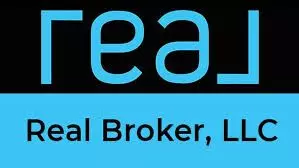Understanding Closing Costs

Understanding Closing Costs
When buying or selling a home, the excitement of a new chapter often comes with a bundle of paperwork—and a line item called “closing costs.” If you’ve ever wondered what these costs actually cover, you’re not alone! Let’s break down the essentials so you can walk into your closing day confident and prepared.
What Are Closing Costs?
Closing costs are the fees and expenses, beyond the price of the property, that buyers and sellers need to pay to finalize a real estate transaction. Think of them as the final step before you get the keys or hand them over. These costs can vary widely depending on where you live, the type of loan, and the specifics of your deal.
Common Components of Closing Costs
- Loan Origination Fees: Charges from your lender to process the new loan.
- Appraisal Fees: The cost for a professional to assess the market value of the property.
- Title Insurance: Protection against legal issues with the property’s ownership history.
- Attorney Fees: Payment for legal services, required in some states.
- Escrow Fees: Charges for the third party that manages the transfer of funds and documents.
- Recording Fees: Paid to local government to officially record the transaction.
- Prepaid Costs: Such as homeowners insurance, property taxes, and interest.
Who Pays Closing Costs?
Both buyers and sellers typically share the responsibility, but how much each pays depends on local custom and negotiation. Buyers often cover most lender-related fees, while sellers may pay for agent commissions and certain transfer taxes. It’s always wise to review the closing disclosure carefully and ask questions if anything is unclear.
How Much Should You Expect to Pay?
Closing costs usually range from 2% to 5% of the home’s purchase price. For example, on a $400,000 home, this could mean anywhere from $8,000 to $20,000. Getting a detailed estimate from your lender early in the process can help you budget and avoid surprises.
Tips to Manage or Reduce Closing Costs
- Shop Around: Compare lenders and service providers for the best rates and fees.
- Negotiate: Some fees are flexible, so don’t be afraid to ask for discounts or credits.
- Ask the Seller: In some markets, you can negotiate for the seller to cover some or all of your closing costs.
- Review Your Disclosure: Double-check every item to ensure accuracy and avoid unnecessary charges.
Final Thoughts
Understanding closing costs puts you in the driver’s seat during your real estate journey. With a little knowledge and preparation, you can minimize stress—and maybe even save a bit of money as you move toward your new home.
Recent Posts











